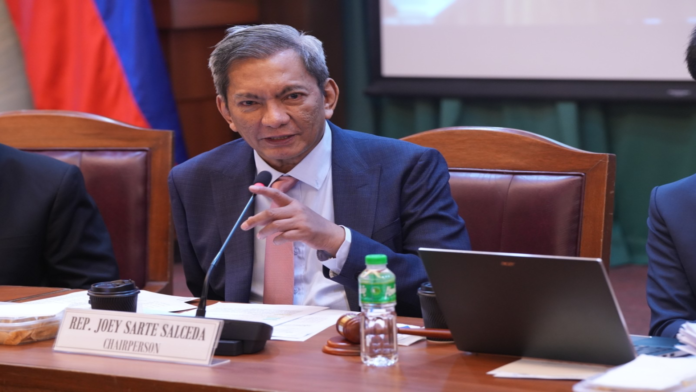President Ferdinand R. Marcos Jr.’s efforts to encourage more investments into the country have paid off based on the fourth-quarter and full-year 2023 growth of the Philippine economy, a leader of the House of Representatives said on Wednesday.
House Ways and Means Committee chair, Albay Rep. Joey Salceda, said the Q4 and full-year gross domestic product (GDP) figures point to robust private sector long-term investment, with gross fixed capital formation being at a “very strong” 8.1 percent.
The Philippine economy grew by 5.6 percent in the fourth quarter of last year, bringing the full-year 2023 growth to 5.6 percent.
“This points to the work of the President in encouraging more investments into the country through reforms to make doing business easier and fairer,” Salceda said.
He particularly noted that the export of services grew at a “remarkable” 13.6 percent, which he said is “understated,” considering that it does not fully account for the growing virtual services sector or the so-called “micro” business process outsourcing (BPO).
He also pointed out that the country’s economic performance is in the context of a “highly hostile” global environment with high food prices due to ongoing conflicts in Ukraine and Israel, as well as high US Fed interest rates, which dampen global growth.
“All in all, the efforts to boost investment are working despite global headwinds,” he said.
He, however, said government spending “took a heavy toll” from election bans due to the Barangay and Sangguniang Kabataan (SK) elections, as well as delays in the release of funds for key programs.
The government spending, he said, grew at a disappointing 0.4 percent full year, and shrunk by 1.8 percent in the fourth quarter.
“To support expansionary government spending, we need strong tax and non-tax revenue growth, as well as faster releases of programmed and unprogrammed appropriations,” he said.
He said House Bill 9513, or the use of a broader range of sources for the release of unprogrammed funds, would allow the government to do “catch-up work faster.”
“Fortunately, similar provisions are now integrated in the 2024 General Appropriations Act. So, economic performance for 2024 should be better,” he said.
He said he also expects rice prices to begin stabilizing by May or June when political pressure in India to boost buffer stocks will have eased after their Federal elections. (PNA)
Photo credit: House of Representatives Official Website


